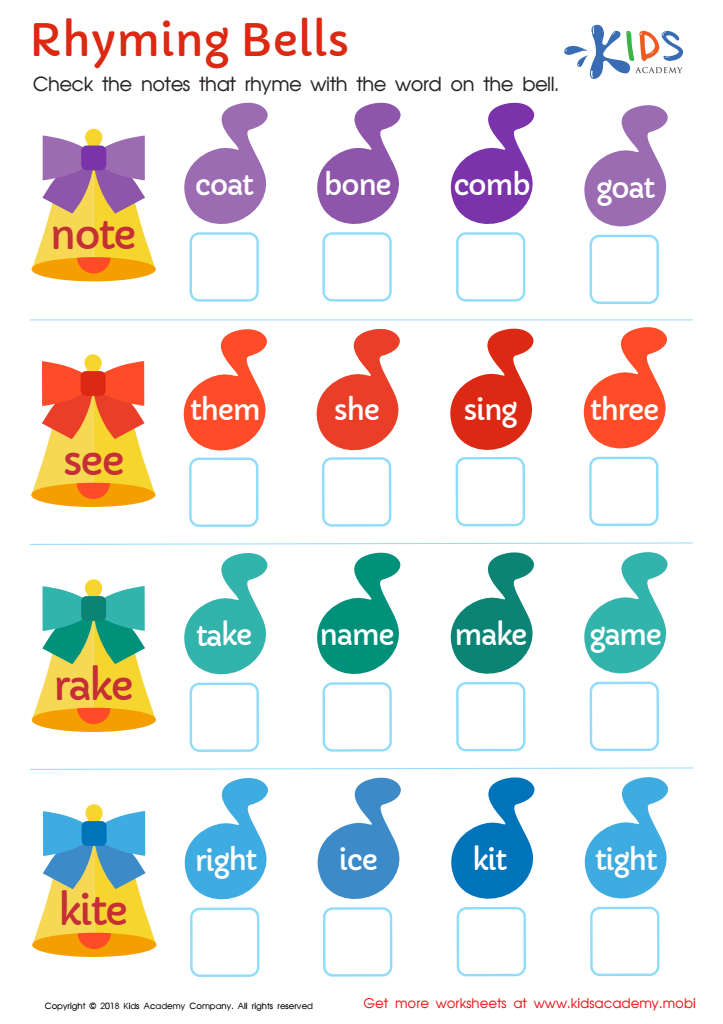Rhyming skills development Normal Alphabet Worksheets for Ages 3-7
4 filtered results
-
From - To
Unlock your child's potential with our engaging "Rhyming Skills Development Normal Alphabet Worksheets" designed for ages 3-7. These fun and educational worksheets offer a playful approach to learning, helping young minds strengthen their phonemic awareness through rhyming activities. Each worksheet is thoughtfully crafted to nurture early literacy skills, build vocabulary, and boost reading confidence. Perfect for both home and classroom environments, our worksheets turn learning into an exciting adventure. Give your child the head start they deserve in their reading journey by integrating these effective and enjoyable resources into their daily routine. Start rhyming and thriving today!


Rhyming Words Rhyming Worksheet


Rhyming Bells Worksheet


First Words: Picture Rhymes Worksheet
Rhyming skills play a crucial role in early childhood development, particularly for ages 3-7, as they lay the foundation for essential literacy and language competencies. Parents and teachers should prioritize rhyming because it directly enhances phonemic awareness, which is the ability to recognize and manipulate sounds in words—an essential early reading skill. Rhyming games and activities help children discern patterns in words, making it easier for them to decode new words while reading.
Moreover, engaging with rhymes boosts vocabulary and comprehension, as children are exposed to a variety of words in a fun, memorable context. This exposure enriches their language and aids in better communication skills. Rhyming also sparks creativity and imagination, as children invent their own rhymes and stories, fostering a love for reading and writing.
Importantly, rhyming activities are enjoyable and interactive, promoting a positive attitude toward learning. They provide opportunities for bonding with parents and teachers while developing social skills in collaborative settings. By investing in rhyming skills, parents and teachers help children build a strong linguistic foundation, essential for successful lifelong learning. Thus, fostering rhyming skills is an effective, enjoyable strategy for advancing early literacy and overall language development.
 Assign to My Students
Assign to My Students















